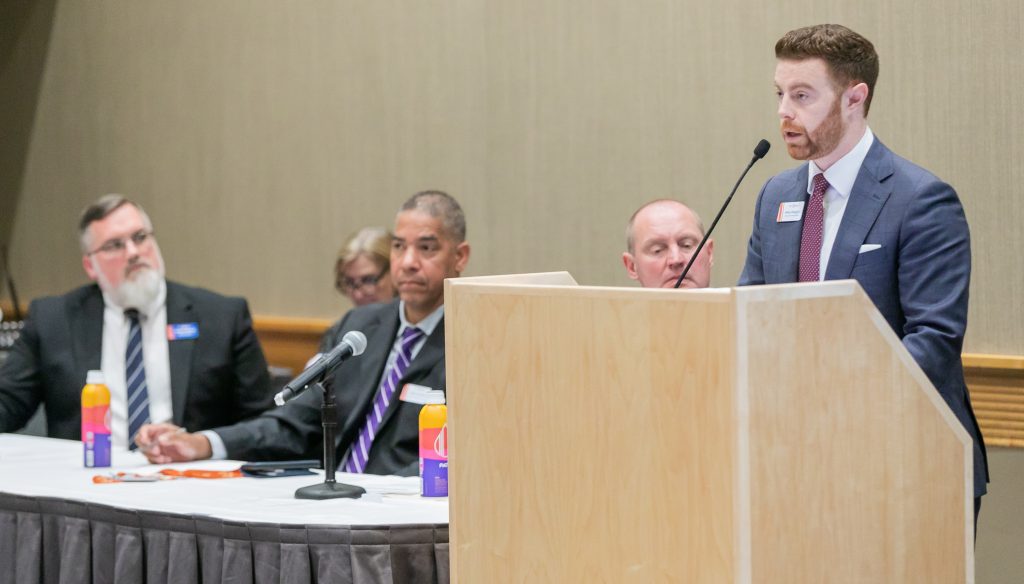Safety on TriMet in a New Era
5/3/2024

Host agency TriMet shared their strategies for managing safety and security at the How TriMet Tackled Safety & Security in the Face of So Many Issues session April 29 at APTA’s Mobility Conference.
JC Vannatta, TriMet’s executive director of public affairs, called the pandemic “a dark time” in the city, with protests creating an additional whole new set of challenges, but innovative strategies have helped TriMet emerge as a better agency.
Community input was key to solving security issues, according to John Gardner, chief inclusion, diversity, equity, and accessibility officer, who described how community solutions work, “but only when the community is at the table for planning, implementation, oversight, and next steps.” Surveys and meetings with stakeholders showed that the public insisted on training in anti-racism, cultural humility, and de-escalation for TriMet workers.
The agency went even further, repurposing $1.8 million from transit police to community services, working with 42 community-based organizations. The studies showed the agency that most of those who felt unsafe on Portland transit were minorities and those with disabilities. “You have to maintain safe spaces for your ADA community and others that are dependent on those functions,” according to Andrew Wilson, executive director, safety & security and chief safety officer. His agency is now working on trip-card-only access to elevators to prevent non riders from using elevators as places to take drugs—enabling riders to avoid some of the drug use so prevalent in public transit facilities in Portland.
The effort to move away from police-response only has also made a great difference for users of the TriMet system. Wilson called the drug epidemic, homelessness, and loss of police officers as a result of protests a “trifecta of difficulty,” but the response by TriMet has stemmed the tide.
TriMet now has a rapid-response center and 10,000 cameras covering the system. Unarmed personnel respond to incidents whenever possible, with code and fare enforcement increased. The agency’s safety response team started as a pilot program but has since expanded to 80 people. Carrying NARCAN and addressing hydration and other issues have worked wonders for making the system run more safely and smoothly.
One of the most emphatic points to come from the panel was from Miles Pengilly, TriMet state government affairs manager, who told attendees that, during the pandemic and through periods of unrest, the agency learned that “no one was going to solve our problems for us.” He urged a nodding audience to look for solutions and to adopt them as their own.
See more images from the conference here.